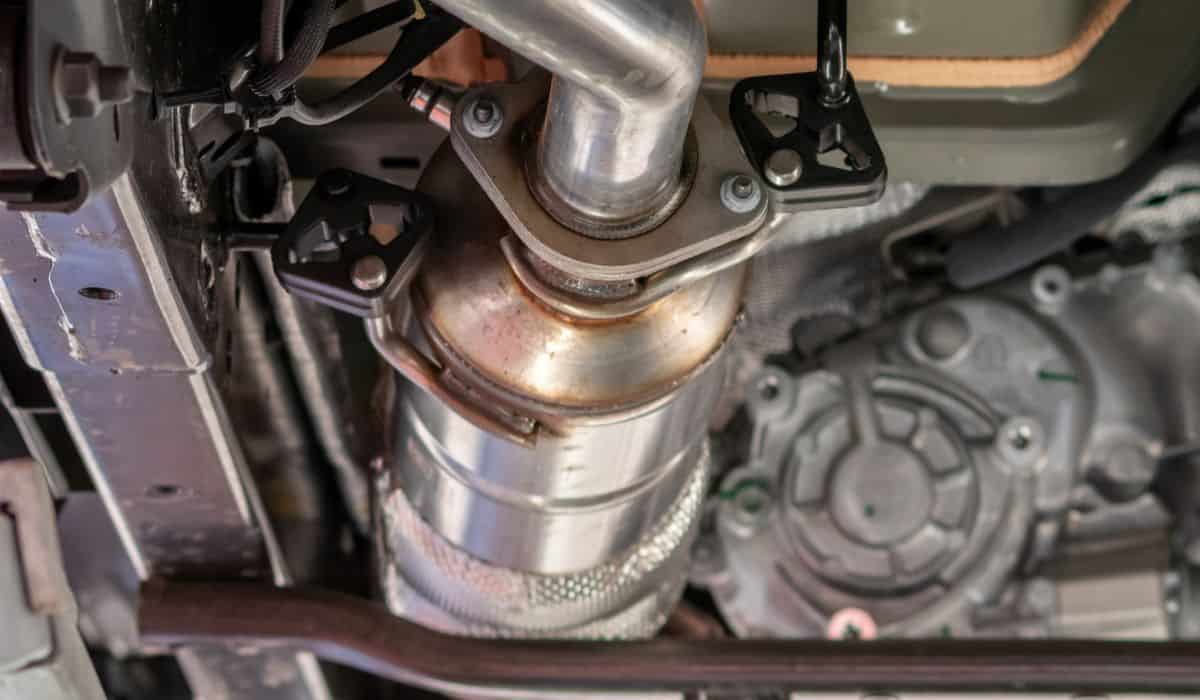Will A Clogged Catalytic Converter Cause Loss Of Power?
Catalytic converters are an essential part of any car. They work hard to convert harmful compounds in the car’s exhaust into less harmful ones, protecting the environment from some of the damage vehicles can do. However, the catalytic converter can get clogged, causing a whole host of issues.

A clogged catalytic converter will block the exhaust flow, and pollutants will build up. As a result, the engine will be forced to work harder, which can cause a loss in power and acceleration. It’s important to fix a clogged catalytic converter as soon as possible.
Let’s take a closer look at how a catalytic converter works, signs that it’s clogged, and how it can affect the car’s power. We’ll also go over how to repair a clogged catalytic converter, so that you can safely get back on the road.
How Does a Catalytic Converter Work?
A catalytic converter works by using a chamber called a catalyst to chemically convert pollutants in the exhaust into less harmful compounds (like steam) before they’re released out into the environment. The catalytic converter is made up of two main parts: a ceramic or metallic substrate and an outer shell.
Exhaust gases pass through the substrate, which is coated with a very thin layer of the catalyst. The catalyst is typically made of platinum, palladium, or rhodium, and it’s designed to promote chemical reactions that convert pollutants into less harmful compounds.
The catalytic converter is an essential component of the emissions control system in modern vehicles, and it should be checked regularly to ensure proper functioning. Catalytic converters typically need to be replaced after 10 years, but other issues (like bad clogs) may result in the need for an early replacement.
What Are the Symptoms of a Clogged Catalytic Converter?
If your catalytic converter has become clogged, you may notice some of the following symptoms:
- Poor fuel economy
- Poor engine performance
- The ‘Check Engine’ light might come on
- The engine backfiring
- The smell of sulfur in the exhaust, which will smell like rotten egg
- Difficulty starting the engine
If you have one or more of these symptoms, it’s possible that the catalytic converter has become clogged and needs attention.
Can a Clogged Catalytic Converter Lead to Power Loss in Your Vehicle?
Yes, a clogged catalytic converter can lead to power loss in your vehicle.
When the catalytic converter becomes clogged, its ability to perform its main function is compromised, and the exhaust flow is restricted. The buildup of excess pollutants in the converter can also cause the engine to run poorly and experience a loss of power.
Furthermore, a clogged catalytic converter will generally force the engine to work harder, potentially causing it to lose power.
How Do You Repair a Clogged Catalytic Converter?
If you do find yourself with a clogged catalytic converter, it’s usually best to leave it to a professional to repair it. The reason for this is that it’s illegal to tamper with a catalytic converter, so if you don’t know what you’re doing, you could end up with not only a dysfunctional vehicle but also legal troubles.
However, if you do want to repair the catalytic converter yourself, there are a few steps you can take:
- Locate the catalytic converter in the vehicle. It’s usually found between the engine and the muffler, though you may have to check your car manual because it differs among various makes and models.
- Use a special catalytic converter cleaning solution (on Amazon) and then use a vacuum or compressed air to blow out any debris that may have fallen into the converter while you were cleaning it.
- Start the engine for a few minutes and let the cleaner do its work.
- Check the exhaust pipe to make sure there’s no blockage there.
If you’ve successfully cleared the clog, your vehicle should start running normally again. If there’s still an issue, it’s definitely time to take your car in for professional repair.
DIY vs. Professional Repair: What to Know

If the catalytic converter has a typical clog, you’re confident that you know your way around your car, and you can get your hands on a catalytic converter cleaning solution, then it may be worth trying the DIY fix yourself. However, if you’re hesitant about proceeding on your own for any reason, then it’s best to take the vehicle to a professional.
As we mentioned earlier, there are strict laws surrounding catalytic converters. Professional mechanics will be aware of these laws and can navigate them to ensure your car meets emission standards.
